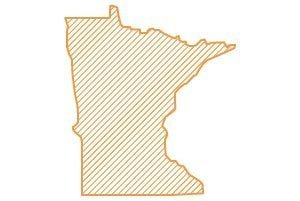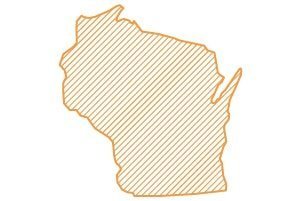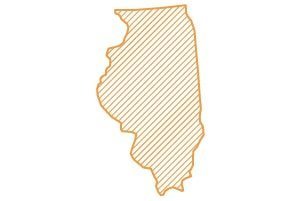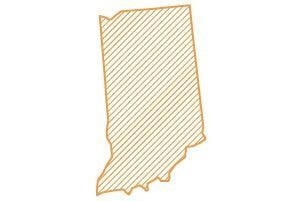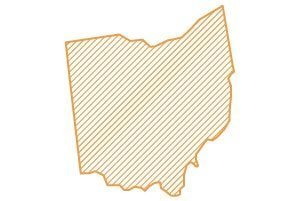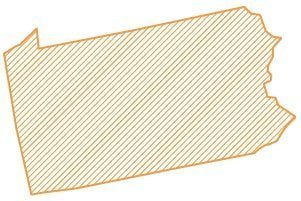The state of Michigan is a perfect state for those who love the snow and winter sports. There are countless opportunities for snowboarding, skiing, sledding, and biking. In the summertime, there is fly fishing, hiking, and biking. Also, Michigan has some of the largest and most diverse cities in the country, including Detroit which is its largest city. Detroit is known as the automobile capital of the world, and for originating Motown music sound.
For those wishing to pursue higher education in Michigan relating to librarianship, there are two master’s programs in library and information science that the American Library Association accredits. The University of Michigan also has a bachelor of science in information and a Ph.D. in information.
Wayne State University is located in the big city of Detroit, and they offer one of the two ALA-accredited MLIS programs. The University of Michigan is located in Ann Arbor, which is frequently known as one of America’s most livable cities. For more information about these programs and to see if they are the right fit for you, keep reading.
Bachelor Programs in Information Science in Michigan
The bachelor program at the University of Michigan is connected to the School of Information. The program doesn’t start until junior year. This allows students to finish their core classes without having to commit too early to a specific degree. If after two years, you know information science is the path for you, then you will be happy to find out what you can learn from the University of Michigan.
Bachelor of Science in Information at the University of Michigan
This bachelor’s program is an upper-level program that is completed in the junior and senior years. It focuses on creating data and technology to serve communities and teach communities how to interact and access data and technologies. The program has helped students gain jobs they love and 94% of graduates earn a starting salary of $80,000 annually.
How to apply
First, you need to apply to the University of Michigan’s undergraduate program, either as a freshman, or a transfer. After you have completed the required courses during your freshman and sophomore years of college, you will qualify for the BS in Information program.
ALA Accredited Masters in Library Science and MLIS Programs in Michigan
Both MLIS programs in Michigan are ALA-accredited and offer different courses and learning experiences. If you are looking for an online option, Wayne State University’s program is completely online and they have a customizable degree. On the other hand, if you are looking for a more hands-on program, you will love what the School of Information at the University of Michigan has to offer with its engaged learning approach to the curriculum. Keep reading to learn more about these programs and which may be the better fit for you.
Master of Library and Information Science at Wayne State University
The M.L.I.S. program at Wayne State University focuses on preparing students for leadership positions in the field of library science and other careers within information organizations. The program is diverse in the type, of course, students can choose from and the curriculum is customizable to fit students’ needs for professional life after the program. Most courses focus on organizing information, library and information services, and how to bring information and technology to the local community as well as the international community. Additionally, they have a program for school library media endorsement for those wishing to work as a school librarian in the state of Michigan. You cannot work as a school librarian or media specialist without certification and, in most cases, a master of library and information science.
- 39 credit hours
- ALA-accredited
- 100% online
- Must maintain a 3.0
- Specializations in the program include library services, information management, and archives and digital content management.
How to apply
To qualify, you need to hold a degree from an undergraduate program at an accredited university or college with an average 3.0 GPA. If you do not have a 3.0 GPA, see their other guidelines for possible admission. Then apply online and pay the application fee. You will also need to send in a Statement of Purpose and a resume.
Master of Science in Information at the University of Michigan
This master program stands out from other MLIS programs because of the cutting-edge technology they use. A large part of the program is learning new technologies and how to evaluate and research them. Then students are taught how to teach others how to use new technologies.
The program also has a retention graduation rate of 96% and 96% of graduates receive a career shortly after graduating and have said they are satisfied with their job.
- ALA-accredited
- Offers three areas of interest including data science, data analytics, computational social science, library science, digital archives, preservation, User Experience research and design, human-computer interaction, and social computing
- Internship required
- Offers an accelerated one-year degree program
How to apply
To qualify, you must have a bachelor’s degree from an accredited university or college and have an average 3.0 GPA. Then apply online and fill out the online application, pay the application fee, and send in a transcript from the last university or college you attended, three letters of recommendation, a short essay, a personal statement, and a resume.
Ph.D. in Library Science Programs at Michigan
If you want to further your career in library and information science or conduct research in the field of information science, a Ph.D. in library science is for you. Some careers you can have with a Ph.D. in library and information are upper administration in a library system, a professor of library and information, and a researcher and writer for librarianship and information science.
Ph.D. in Information at the University of Michigan
In this program, you will work alongside world-class professors and researchers in various research projects that interest you. You will also learn to use various kinds of research methods, including newer methods. The degree will give you the knowledge and skills to become an independent scholar.
How to apply
First, apply online and pay the application fee. Then send in a Statement of Purpose essay, a personal history statement, a resume, three letters of recommendation, and transcripts.
Ann Arbor, Michigan Library Science Degree Programs and Career Opportunities
Ann Arbor is the home of the great University of Michigan. Above are the library science programs from the University of Michigan. You can receive your bachelor’s, master’s, and doctorate degrees in library and information science from the University of Michigan. 96% of the students graduate with careers they love. Part of the reason is because of the student’s education and preparedness, but it’s also because of the research and internship opportunities available within the city of Ann Arbor. Large data and information businesses are stationed in Ann Arbor. These major businesses include ProQuest, IBM Watson Health, Thompson Reuters, and the top employer in the city, which is the University of Michigan itself.
The city of Ann Arbor also employs a large number of educators, motor specialists and researchers, and health informatics specialists.
How to Become a Librarian in Michigan?
There are four levels of librarianship certification in the state of Michigan. Level one is a permanent professional librarian certification and requires a master’s degree from an ALA-accredited program and four years of professional library work after receiving a master’s in library science.
Level two is a professional librarian certification and requires a master’s degree in library science from an ALA-accredited program. Also, some continuing education or professional development courses may be required every few years.
Level three is a limited professional librarian certification and requires a bachelor’s degree from an accredited college or university, and the completion of the Library of Michigan’s beginning workshop.
Level four is a paraprofessional certification and requires a high school diploma or equivalent, completion of the Library of Michigan’s beginning workshop, and one year of full-time employment with a letter from the employer verifying the number of hours.
What else can you do with a Library Science Degree in Michigan?
Typical careers you can start that are offered in Michigan include data analyst, user experience researcher, IT analyst, digital media coordinator, and business analyst.
Michigan also has a multitude of jobs for archivists and digital archiving. The Archives of Michigan has a multitude of career opportunities and Michigan has 12 major museums as well.
Library Science Career and Salary Opportunities in Michigan?
According to the U.S. Bureau of Labor Statistics, librarians in Michigan make an average of $53,310 a year. About 10% of librarians make over $70,000 a year and work in management or are professors in library science with their Ph.D. in Information Science. Additionally, librarians in the Lansing-East Lansing metropolitan area make an average of $63,740 a year.
Most librarian jobs in Michigan are within the k-12 schools, university libraries, and public library systems.
Additional Links
If you want to know more about librarianship visit https://www.ala.org/aboutala/
To find jobs in librarianship and other library-related information go to https://www.milibraries.org/
To view, all of the information about Michigan libraries and the history of Michigan go to https://www.michigan.gov/libraryofmichigan/about

